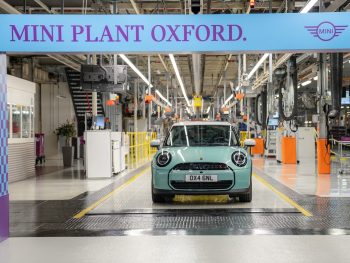BMW halts plans for EV production at UK Mini plant
BMW Group is delaying the reintroduction of electric vehicle production at its Oxford Mini plant due to the “multiple uncertainties facing the automotive industry”.
The plant was being transformed to build the three-door Mini Cooper alongside the Mini Aceman compact crossover under a £600m investment and was due to start work in 2026.
In a statement, BMW said it had informed the UK government of its decision to “review the timeline” and had also agreed not to take a previously announced grant of £60m.
The global car group announced its plans for Oxford in September 2023, confirming that electric production for the two models would move from the Zhangjiagang plant to the UK for sales to markets outside China. The deal, brokered by Rishi Sunak’s government, was said to have secured the long-term future of the home of the Mini brand and provided yet another vote of confidence in UK automotive manufacturing.
In its statement, BMW said it had already started work to electrify the Cowley plant for the two models, “with construction well underway to make the plant future-ready”. Work already completed includes a new logistics facility while the German auto maker is also working on an extension of the body shop and the construction of a new area for battery installation.
It’s the latest blow to the UK automotive sector after Stellantis’ confirmation earlier this month that it will close its 120-year-old Luton plant in the second quarter of 2025 amid ongoing rows over the UK’s ZEV mandate EV sales quotas.
The Government’s high-profile consultation on the ZEV mandate ended last week. While the fast-track consultation was launched after months of warnings from carmakers of “irreversible damage” from the EV rules, Labour stressed that the consultation sought views on potential adjustments to “flexibilities” for the ZEV mandate, not sales targets, and that the work would also explore “how, not if” the UK meets the reinstated 2030 petrol and diesel car phase-out.


